Boys Noize: "I’m attracted to making extreme decisions and f*cking with people"
Alex Ridha’s fifth Boys Noize album aggressively explores the schism between soaring melodies and hard, atonal beats. Danny Turner reveals his modular approach
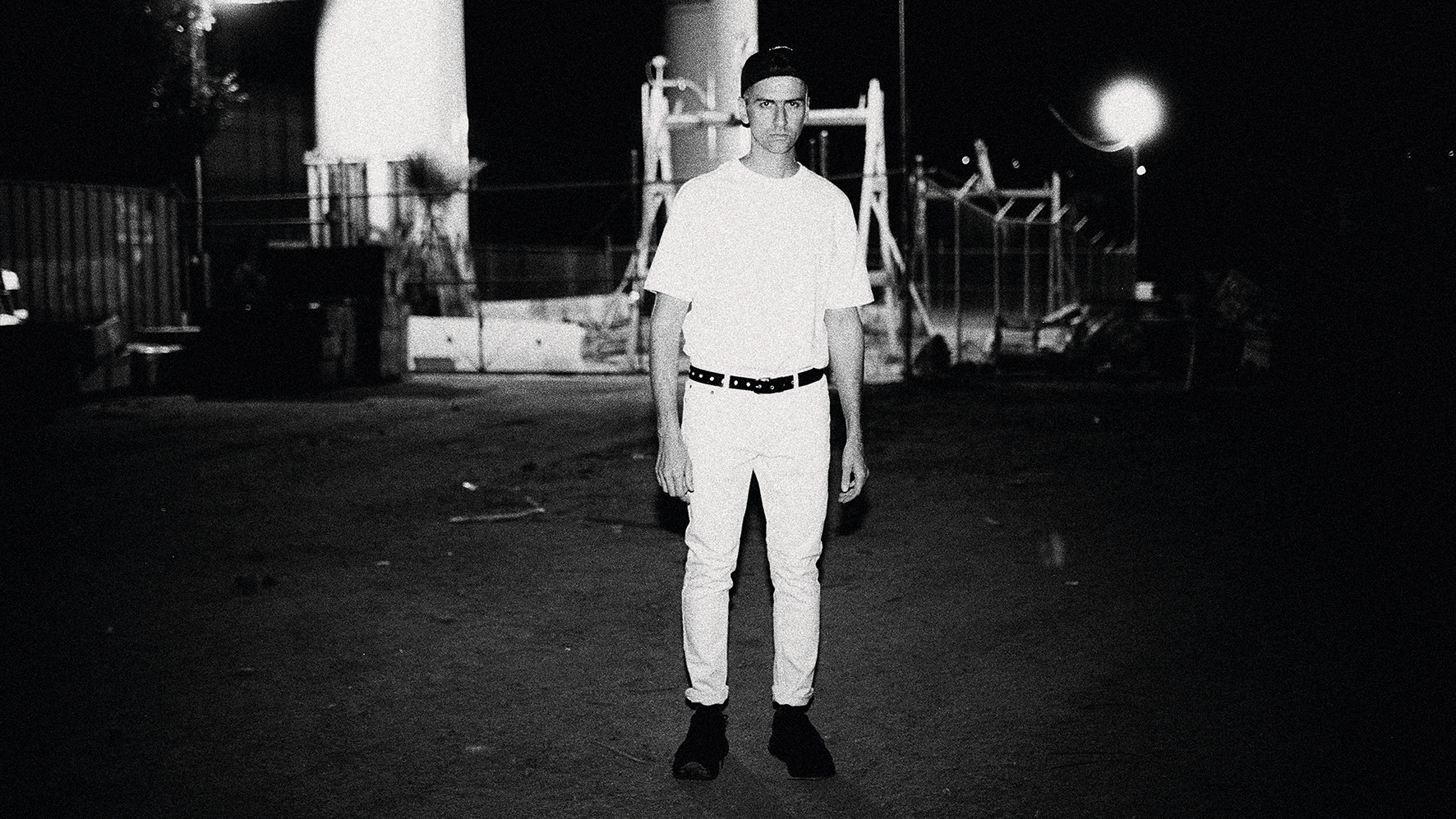
Want all the hottest music and gear news, reviews, deals, features and more, direct to your inbox? Sign up here.
You are now subscribed
Your newsletter sign-up was successful
Almost 15 years after the release of Oi Oi Oi, the popularity of Alex Ridha’s Boys Noize alias shows no sign of receding. Anointed one of the world’s top DJs, his aggressive techno-punk sound is both uncompromising and distinctive, leading to remixes for the likes of Depeche Mode, Daft Punk and Nine Inch Nails and surprisingly leftfield alliances with Snoop Dogg, Mark Ronson and Lady Gaga.
Inspired by sound itself and approaching each album with a clean slate, Ridha’s fascination with technology has recently branched into the modular realm, specifically Eurorack. The familiar sound of motoric, battering beats and deeply immersive textures underpins his latest Boys Noize album Polarity, exploring the sonic tensions between industrial rock and electronic pop through a whole host of collaborations.
How does the album symbolism and title Polarity relate to your fifth Boys Noize album?
“The visual aspect of music has been very important to me and on Polarity I’ve had the pleasure of working with graphic designer Eric Timothy Carlson because I was a huge fan of his work with Bon Iver. We went into every aspect of polarity and how it relates to my personality, collecting ideas and illustrating them before applying them to the design.
"By polarity I not only mean our society and personal relationships, but whether musical extremes can work together. For example, what can I do to make a very hard, disturbing and industrial distorted sequence funky or how can I break it up with a sound or vocal and balance those things out? Usually, what I find is a magical point where those two sides meet.”
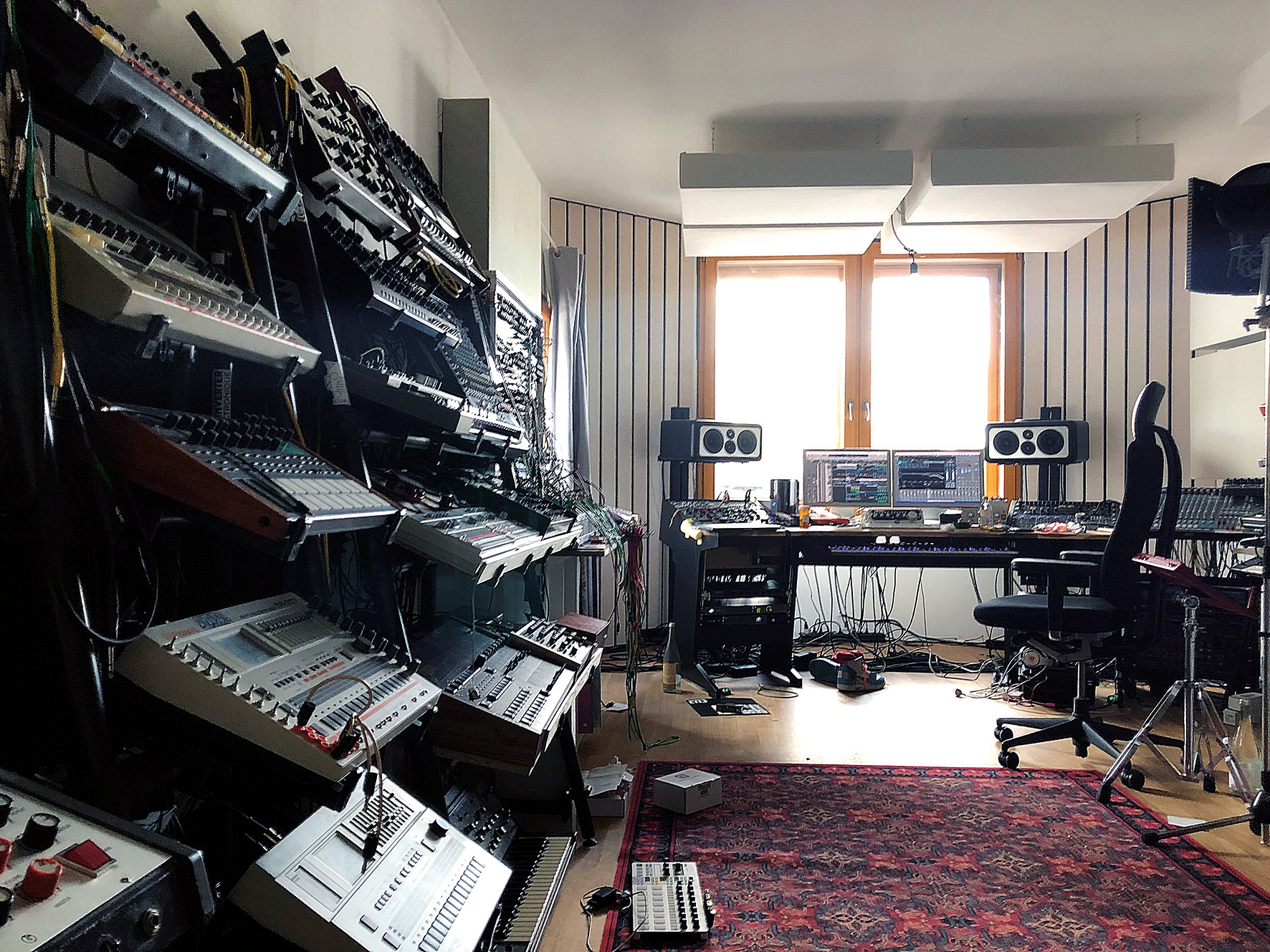
There are many examples of that on the album. For example, harsh rhythmic sounds grinding against female pop vocals…
“That’s been a musical fantasy of mine for many years but it took a long time to get to a point where I would meet an artist I adored enough to bring into my world. For me, it never seems to work when you send or receive stuff remotely.
Want all the hottest music and gear news, reviews, deals, features and more, direct to your inbox? Sign up here.
"To create a song like Love & Validation with Kelsey Lu was great. I’d been to her concerts, we became friends and when we created the song together in the studio we both had goosebumps. Everything starts with a sound, but if you can manage to get that emotion on the record then people will resonate with that.”
Were you reticent to explore pop elements?
“The music I’ve released in the past has mostly been instrumental because I don’t like pop music structures or like to know what happens next in a song. The song Ride or Die, which is another one I did with Kelsey, doesn’t have that structured pop song feeling. It has a vocal, but the vocal is just as important as the kick drum. That’s what I love about using vocals, trying to create a different way of listening to a song.”
When you’re writing a track, will you typically leave space for a vocal to be added?
“Most of the vocal tracks on Polarity were written from scratch and none of my music has a template or sticks to a certain way of composing. That’s why I love using modular gear, as I can create my own way of composing and sequencing. I’m always trying to make things difficult for myself – as soon as I feel comfortable, I start switching things up because that leads me to new ways of exploring sounds.
That’s why I love using modular gear, as I can create my own way of composing and sequencing
"On Polarity, everything started with the instrumental Greenpoint. When I created the main sequence, I’d never heard a sound like that before and that made me very excited. It gave me a vision for the album, its style and where everything would go.”
People always mention house, techno and acid as Boys Noize influences, but what about industrial music?
“My DJ sets over the past few years have definitely been infused by that sound and a niche scene with new types of EBM and takes on new beat has been growing. I have a collection of some of the more electronic-sounding Ministry records, Nitzer Ebb, Front 242 and all the Belgian stuff, but I didn’t plan to move towards that. The sound of Polarity has been driven by modular system patches and everything I make just sounds more industrial.”
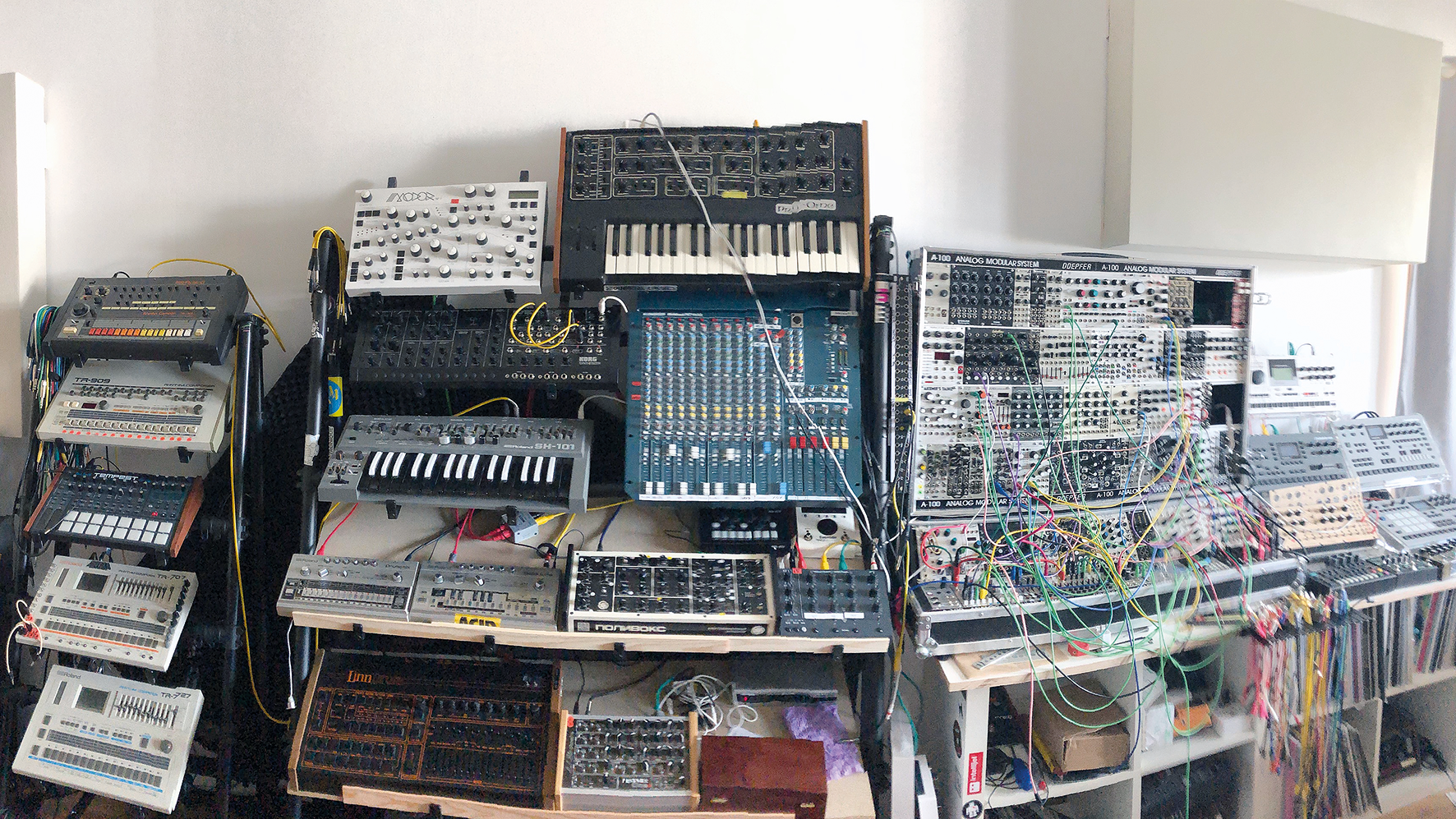
Boys Noize has always blended genres. Is the objective to create something new from something familiar?
“After I made the opening sequence on Greenpoint I realised the music was sounding more industrial but then I had this raw idea of George Michael meets Nine Inch Nails [laughs]. Even on the track Polarity with Ghost Culture you have these really disturbing sounds at the beginning but then it gets funky and becomes quite a gorgeous song.
"As a DJ, I buy and play new music every week and all these records are amazing, so I’m always asking myself what I can do that’s different from the records I play. I love to push myself by meshing these different sounds and styles. In that respect, every sound on Polarity has to have a reason behind it.”
Where does that drive to create come from?
“I‘ve always been like that. When I worked in a record store, I used to get the promos and white labels and DJ them out, but once they were released I didn’t play them anymore because every other DJ was able to.
I’m more motivated by impressing other producers than anyone else
"When a tribe moves one way, I immediately look the other. When I moved to Berlin in 2003, the whole minimal techno thing blew up and my debut album Oi Oi Oi came out, which was the complete opposite.
"I’ve probably been my worst enemy in that sense, but I’m attracted to making extreme decisions and fucking with people. After Oi Oi Oi I made a disco remix that became a banger and people started asking me to make more remixes like that, but I couldn’t – I just started from scratch and did whatever I felt like doing at that moment.”
Boys Noize hit the ground running. Do you think you might have had to conform had things not panned out that way?
“At the beginning I had so much hate and dissing from the German press. After I released my second album that dropped off a little, but I had to develop a thick skin. The key thing is that you have to make music for yourself and not be distracted by anything people say, and I’m more motivated by impressing other producers than anyone else.
"That’s something I tell the artists signed to my label and it is hard because it opens up a bigger discussion about how to make money in a business where the whole culture is built around numbers.
"It helps to remember that there’s a whole musical cosmos co-existing outside of what the industry wants and that’s deeply rooted in everything I’ve done. If you get obsessed by thinking about what other people want, you’ll get crushed.”
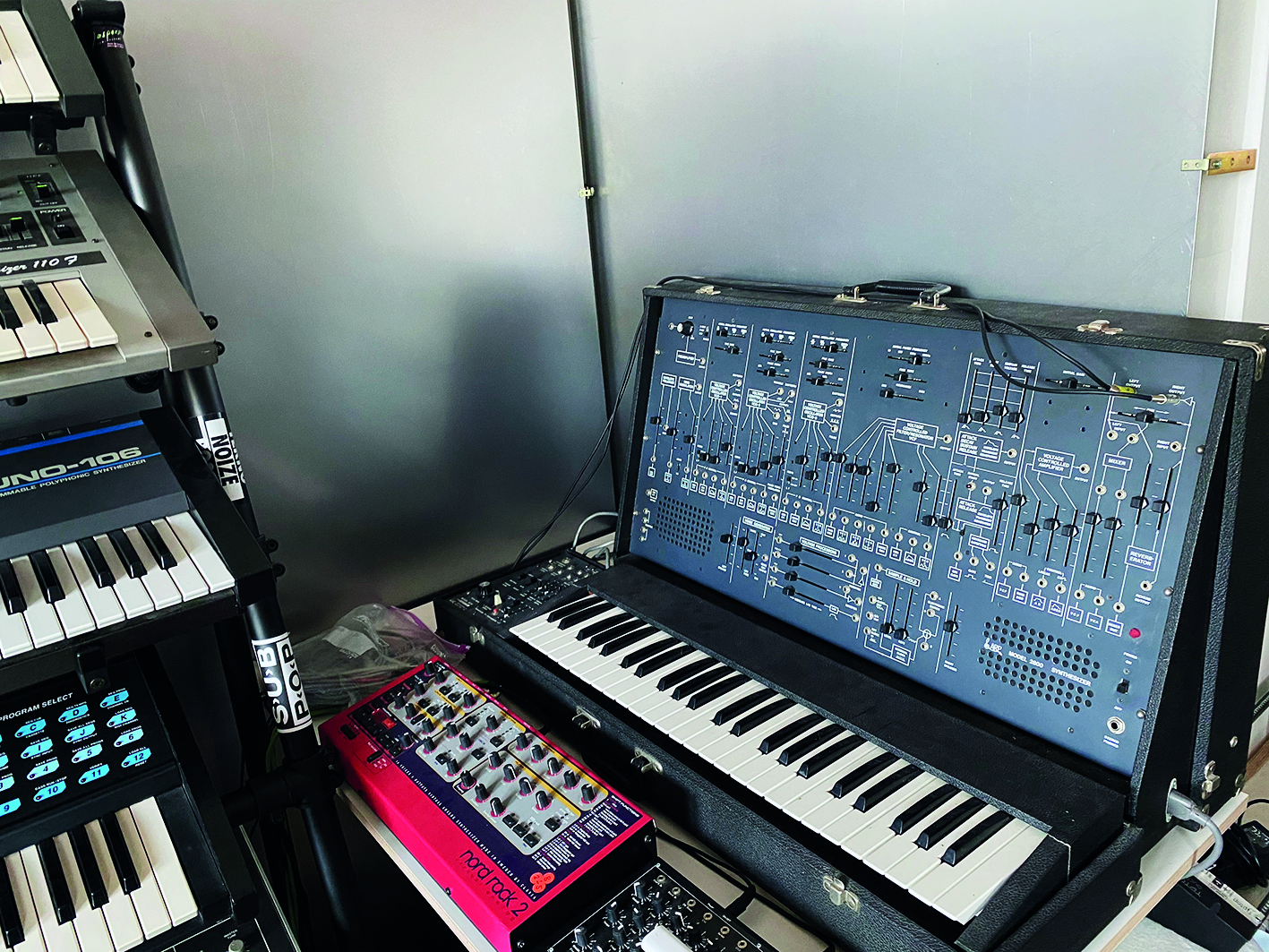
You started your own Twitch channel throughout the pandemic and asked for input from your followers. What’s been the result?
“At the beginning of lockdown I discovered Twitch. I had zero followers and streamed live from my little bunker with a modular system and two or three drum machines to let people see how I made patches and how a weird sound became melodic or a weird bass became funky.
"I live recorded and arranged while people were watching and created themes like Modular Mondays or Techno Tuesdays. After two weeks I had 15 new tracks that were created live and really enjoyed that because I knew that, whether 50 or 500 people were watching, everybody was there for the right reasons.”
And you released those sessions as an album?
“Overnight I self-mastered and put out Strictly Bvnker on Bandcamp and the whole experience gave me energy and endorsed my love of the techno and house music culture.
"Sadly, my computer got burnt by the OBS software and I spent about nine months trying to figure out why every time I opened Twitch it was running like a snail. But I can’t wait to do it again because it was a very different approach to making music, especially compared to Polarity.”
What were you looking for from the Eurorack format that you felt was missing from the equipment you already had?
“It’s gone well as I didn’t end up just doing bleeps and blobs all day but approached modular quite practically.
The cutting-edge stuff is all happening in Eurorack
"I already have a large collection of drum machines and synths and if you look at my favourites like the Pro One, ARP 2600 or Roland SH-101, each was designed with a very specific idea about how they should sound. The beautiful thing about modular was actually the digital stuff.
"I had no desire to get a pure oscillator because my legacy synths already sounded better, but when I heard the digital ones from Mutable Instruments like Elements and Clouds and got into composing and sequencing, I was amazed I could make sounds I wasn’t able to create before. There are also great plugins in Logic like Sculpture, but I’m trying to avoid looking at a screen as much as possible.”
On first glance it looks like you have a Doepfer A-100 Modular System, but on closer inspection it appears to be retrofitted with lots of different modules?
“I only have one Doepfer module, which is a clock divider, but respect to Doepfer for bringing in the Eurorack format. When I used to go to Schneidersladen in Berlin they had a massive Doepfer system but I was always a bit intimidated by it, so yes, it’s just a case.
"Overall, the cutting-edge stuff is all happening in Eurorack and I can take a system around and create whatever I want with it. A lot of what I do is about processing. I love the new take on Mutable’s Clouds called Beat-Repeat and the Noise Engineering stuff like the Basimilus Iteritas drum synth.
"I also love Rossum’s Panharmonium, which allows you to do crazy, mind-bending processing and Rabid Elephant’s envelope VCA-type thing called Natural Gate, which has a very fat sound to it.”
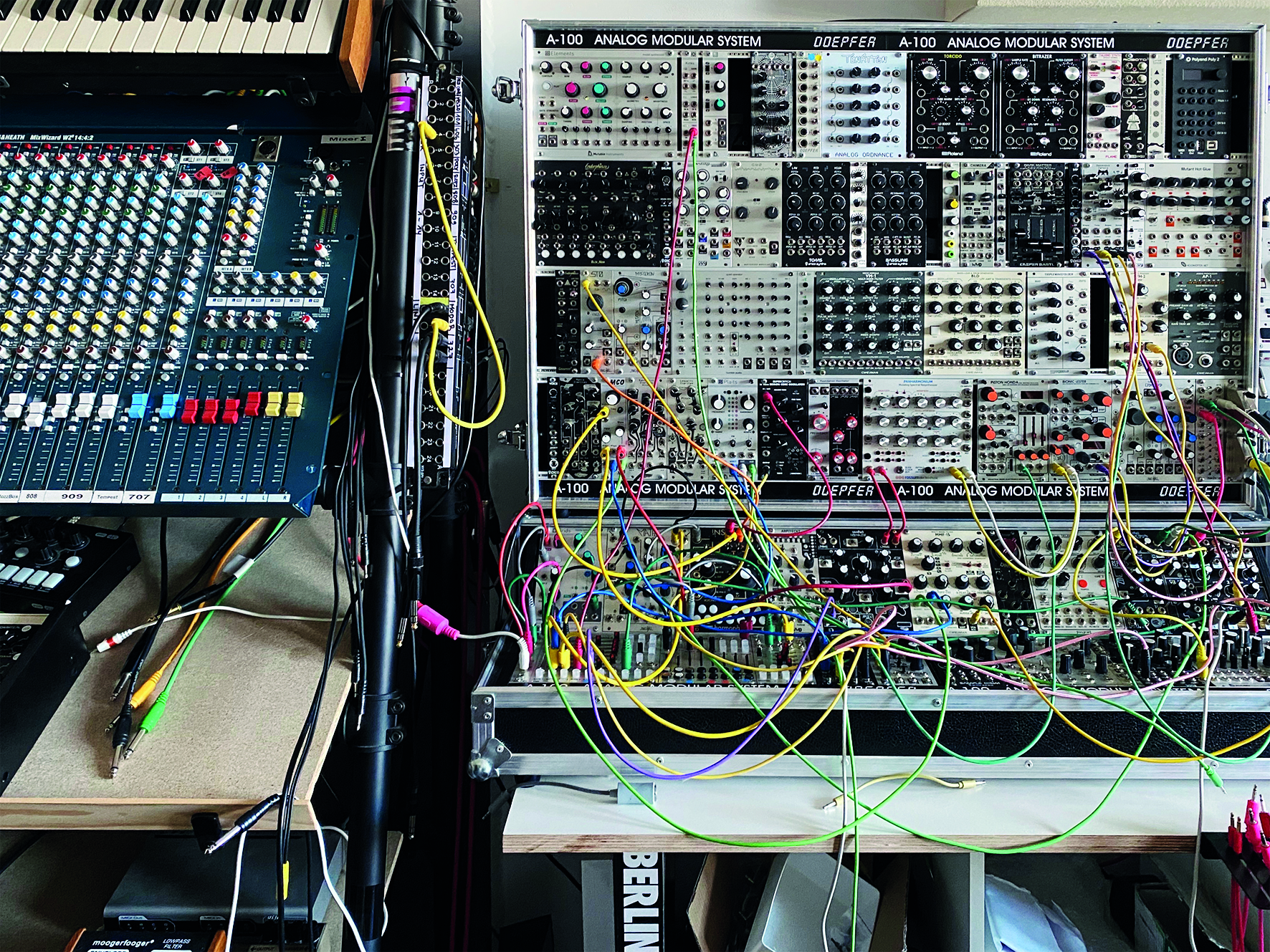
And now you’ve built your own module?
“It’s in collaboration with Steady State Fate, who I was already big fan of. We met in Berlin at Superbooth a few years ago and I told him all these ideas I had for a module because I love using effects chains and wanted to be able to filter the parts that I like.
"To do that in a modular system is possible but requires quite a big patch so I wanted to create a module that would do all of that and be analogue. We built this module called Triptych and it’s in every single patch that I make.”
What does Triptych comprise of?
“It’s based on a unique chain of three devices. You have the input, which goes into a multimode filter and then you have two multimode distortions. Then the chain goes further down the unit into delay and flanger effects that sound similar to devices I like such as the MXR flanger and the early Japanese Maxon flanger.
With modular I can really concentrate on bringing sounds together in a way that sounds sick on a sound system
"You can create modulation, chorus and flanger effects, delay sounds, invert the feedback and sweeping and make actual acid sounds on it that are a bit like a 303. At first I thought the device would just be for processing, but I made a whole demo with it. I made the kick drum without any input and the beautiful thing is that you can route everything the way you want to.”
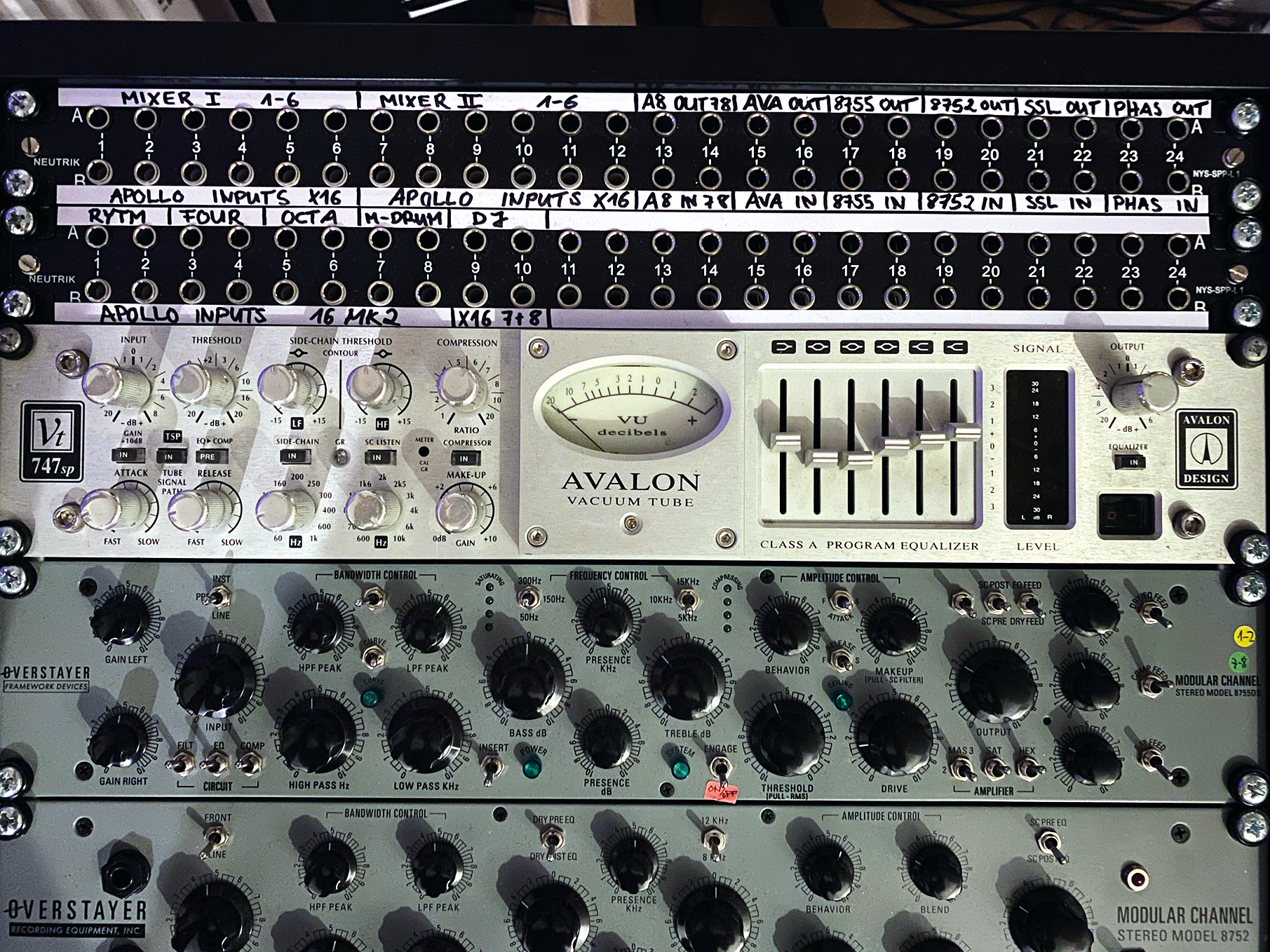
Have you taken a completely different approach to creating tracks because of modular?
“Absolutely, and that’s because of the great amount of possibilities you get with sequencing. I love to create rhythms using Elektron drum machines or my 808, but in Eurorack you have so many different ways to create patterns, rhythms, sequences and melodies that are way more interesting to me.
"What I also like is that a lot of the decisions that you would normally make in Logic or Ableton are already being made with the modular. I still EQ things here and there or edit to make room for another sound, but with modular I can really concentrate on bringing sounds together in a way that sounds sick on a sound system.
"I love putting everything together digitally in Logic too, because I’ve been doing that since I was 15.”
Last year, you contributed to the Lady Gaga track Rain On Me. How did that come about?
“I’ve been friends with a guy in LA for a number of years, played a few of the Polarity demos to him and he said he’d send it to Lady Gaga.
It’s all about the newest machine or module because they bring me the same inspiration
She got back immediately, asked me to come to her studio and the next day I was sitting next to her on the couch [laughs]. Funnily enough she already knew my music and stuff like Surgeon because he’d opened some of her shows, so I was quite impressed with her techno knowledge.
"Anyway, I brought my modular case with me and we wrote Free Woman, which went great, and the next day Rain On Me from scratch. Then I went back to Berlin and her main producer asked more people to join the production to help finish the tracks, so those songs evolved a lot.
"Lady Gaga is a crazy talented musician and I was really impressed by how quickly she could write a song. Those are the energies I feed off because when I’m in the studio I like to open up and give all my best ideas. You don’t see that often from people but those are the moments you create music that means something.”
Would you be interested in doing more production work? You’d be a very good fit for a band like Depeche Mode…
“Are you kidding me? Of course, man. The first remix I did for them was Personal Jesus, which meant so much to me because they’ve been a huge part of my life. So yes, Depeche Mode, if you’re reading this I’m definitely down for that.
"The ’80s was my favourite decade as you had all these electronic instruments coming up for the first time and it was interesting how technology sneaked into pop culture.
"Back then they were fighting over the new machines – I read about Stevie Wonder grabbing Herbie Hancock’s Fairlight and never returning it which is funny. That’s how I feel today; it’s all about the newest machine or module because they bring me the same inspiration.”
Boys Noize’s forthcoming album +/- (Polarity) is out now on BNR.
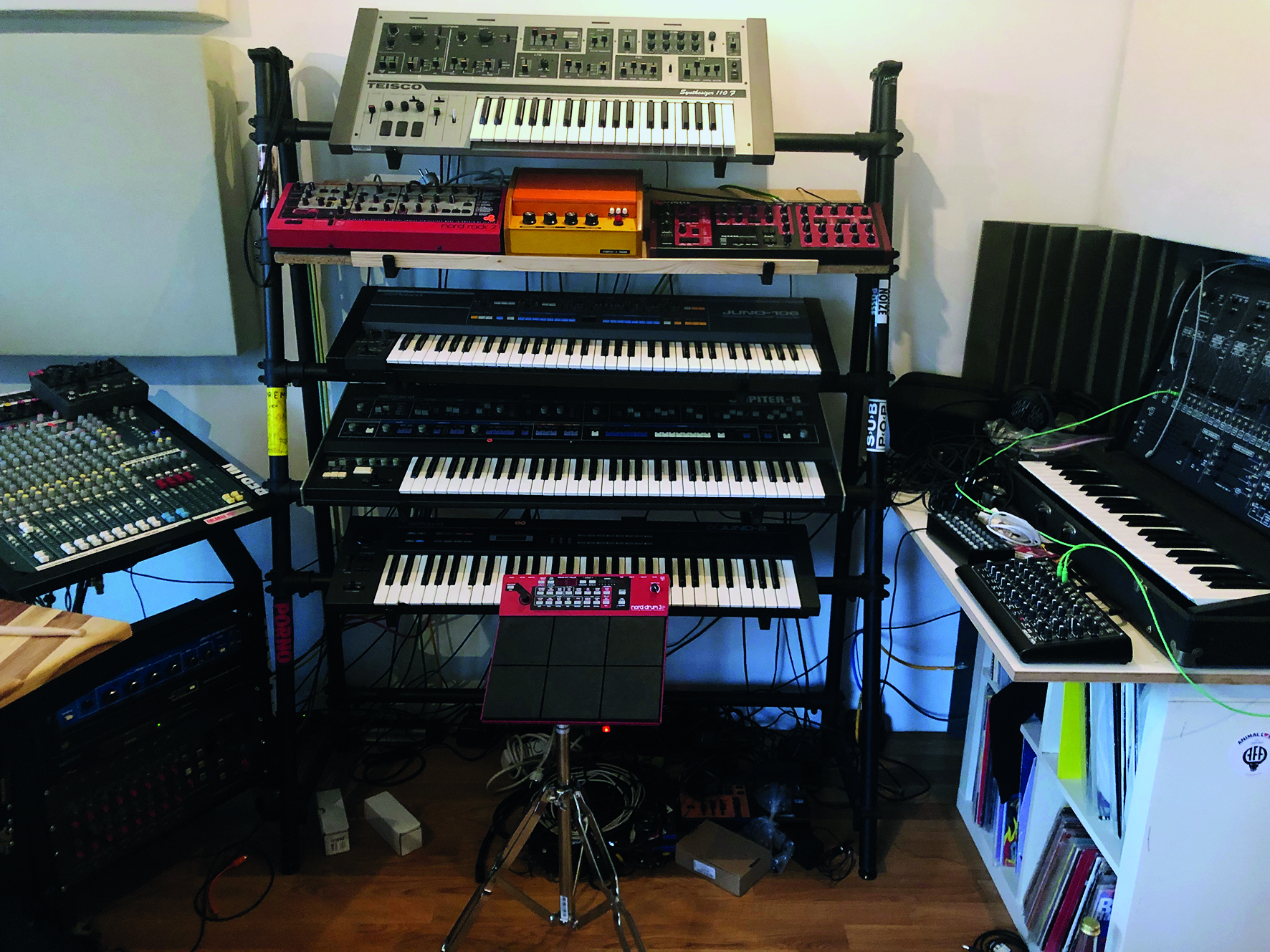


Future Music is the number one magazine for today's producers. Packed with technique and technology we'll help you make great new music. All-access artist interviews, in-depth gear reviews, essential production tutorials and much more. Every marvellous monthly edition features reliable reviews of the latest and greatest hardware and software technology and techniques, unparalleled advice, in-depth interviews, sensational free samples and so much more to improve the experience and outcome of your music-making.
